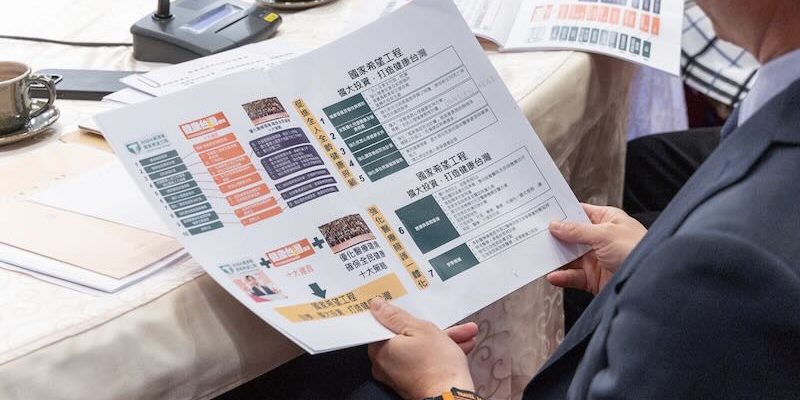
Taiwan revises its law, but eligibility terms seem strict.
A revision to the Nationality Act passed in December and promulgated last month will make it easier–but not nearly as easy as many long-term foreign residents of Taiwan had hoped–for nationals of other countries to become citizens of the Republic of China without having to relinquish their original nationality.
The amended law opens the possibility of dual citizenship for expats living in Taiwan. But that option will be available only for applicants who have lived in Taiwan for at least five years and qualify as “high-level professional talent” in one of six categories: technology, economics, arts and culture, education, sports, and “special.”
How individual applications are handled may depend on how broadly or narrowly the eligibility requirements specified in the law are interpreted. But an initial reading of the conditions leaves the impression that the qualifications are indeed “high level.” The English-language Taipei Times summarized the stipulations as follows:
- The technology category includes experts in high-value technical fields such as nanotechnology, optoelectronics, information technology, biotechnology, military science and technology, artificial intelligence, robotics, and other cutting-edge technologies.
- The economics category includes those with technical skills or knowledge of subjects that could contribute to industrial upgrading, such as those involving semiconductors, biomedical technology, “green” energy, cultural industries, and tourism.
- Arts and culture includes those who received recognition from distinguished institutions or major media outlets, have served on the panels of major arts and cultural prizes, are accomplished preservers or restorers, or are outstanding performers.
- The educational category includes foreigners employed at a Taiwanese academic institution with a rank of assistant professor or above, and those who have published in internationally renowned academic journals.
- The sports category includes athletes who have finished in the top three places in an international competition, national team coaches, international referees, and distinguished players.
- The special category includes distinguished democratic, human rights and religious advocates; those who have authored major works of literature; those who have received international honors or distinctions; and those with a recognized contribution to finance, medicine, transportation, telecommunications, aviation and navigation, meteorology, earthquake studies, or popular culture.
Announcement of the steep conditions for eligibility prompted some expressions of disappointment on blogs and social media. “I guess that it is good to have some way to acknowledge people that have already dedicated most of their lives to the betterment of society in Taiwan,” wrote one commentator. “It doesn’t deal with the much larger issue of a huge number of long-term residents that contribute to Taiwan in a myriad of important ways, though.”
Anthony van Dyck, a director of the Canadian Chamber of Commerce and one of a group of expats informally consulted by the National Development Council on this issue last year, said the stated terms for eligibility are narrower than he had expected and seem to regard “citizenship as a privilege for the select few.” Instead of that elitist approach, he suggests opening the door to ROC nationality to more foreigners “who have lived here for many years, paid their taxes, and shown themselves to be responsible members of the community.” A minimum monthly salary could be set to limit eligibility to white-collar professionals. He added that reciprocity should be recognized for countries that grant dual nationality to ROC citizens.
According to the U.S. State Department website: “The U.S. Government recognizes that dual nationality exists but does not encourage it as a matter of policy because of the problems it may cause. Claims of other countries on dual national U.S. nationals may conflict with U.S. law, and dual nationality may limit U.S. Government efforts to assist nationals abroad. The country where a dual national is located generally has a stronger claim to that person’s allegiance.”
“However, dual nationals owe allegiance to both the United States and the foreign country. They are required to obey the laws of both countries. Either country has the right to enforce its laws, particularly if the person later travels there. Most U.S. nationals, including dual nationals, must use a U.S. passport to enter and leave the United States. Dual nationals may also be required by the foreign country to use its passport to enter and leave that country.”





